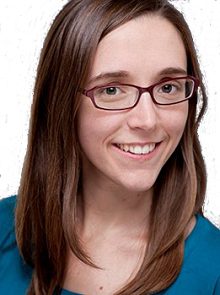
Resilience Project: A Study of Child Development in the Context of a Pandemic
Why do a study on child development in the context of a pandemic?
The COVID-19 pandemic has been disrupting our lives and those of our children since March 2020. The closure of schools and the disruption of school rhythms will have more or less significant impacts depending on the children’s previous academic and psychosocial trajectory and the extent of personal and family stress experienced. The majority of children will show resilience and will not present academic or motional difficulties in the medium or long term. However, for others, particularly those growing up in low socioeconomic environments, pandemic disruptions may exacerbate some of the challenges and require specific strategies to promote resilience. Increased social inequalities in learning and mental health are likely consequences of pandemic disruption that require the attention of scientists and policy makers. The situation requires that the development of Quebec children be monitored in order to 1) understand the impact of pandemic disruptions on their learning, psychosocial functioning and mental health and 2) identify appropriate measures to mitigate possible negative effects.
Objectives of the Resilience Project
The “Resilience: A Study of Children’s Development in the Context of a Pandemic” project has three components that aim to evaluate a subsample of children who participated in the 2017
Québec Survey of Child Development in Kindergarten (QSCDK). The follow-up of the EQDEM children will transform this large population-based survey (i.e., over 80,000 children assessed in 2017) into a large longitudinal study. In the short term, the addition of data collections during the COVID-19 pandemic will be used to document the experiences of families and children in their home and school settings and to identify populations most in need of services. In the long term, these collections will be used to document the impact of the historical disruptions we are experiencing and the effectiveness of the measures we are putting in place to foster resilience in our children.
Part 1: Resiliency learning
The first component was conducted in winter 2021 with 12,000 children who also participated in the 2017 QSCDK when the children were 9-10 years old. Its purpose was to assess the reading knowledge status of 4th graders and compare that knowledge with 4th graders who took the same test in 2019, before the pandemic.
Part 2: Resiliency Family
The second component was conducted in the summer of 2021 among 4500 parents of 2017 QSCDK children, when the children were 9-10 years old (summer, between grades 4 and 5). It aimed to document family functioning during the pandemic, the impact on the family of health measures and COVID-19 infections, school support for children, psychosocial adjustment, and mental health of parents and children.
Part 3 : Resiliency School
The third component was conducted in the spring of 2022 with teachers of 8,800 2017 QSCDK children when they are 10-11 years old (grade 5). It aims to document children’s academic, psychosocial, and mental health functioning as perceived by teachers.
Research team
Le projet Résilience est dirigé par trois chercheures de l’OPES, en consultation avec les partenaires (ISQ) et les autres chercheurs OPES. Sylvana Côté (Prof. Santé Publique, Université de Montréal, Directrice de l’OPES), Catherine Haeck (Prof. économie, Université du Québec à Montréal, co-directrice de l’OPES) et Marie-Claude Geoffroy (Prof. Éducation et Conseil, Université McGill, directrice axe Santé Mentale de l’OPES) sont responsables du travail réalisé avec l’ISQ pour la conceptualisation des enquêtes, la préparation des questionnaires et les plans d’échantillonnage. Ces chercheures ont une fine connaissance des grandes études
longitudinales québécoises et canadiennes conduites au cours des 40 dernières années par les chercheurs, l’Institut de la Statistique du Québec et Statistique Canada. Elles sont en mesure de proposer des devis et des instruments qui maximisent le retour sur investissement en termes économiques et scientifiques dans ces collectes.

Université de Montréal

Université du Québec à Montréal

McGill University
The investigations
Part 1: Resiliency learning
Assess the impact of the pandemic on students’ writing knowledge in grade 4.
Consult: Article published in EdCan
Part 2: Resiliency family
Describe the socioeconomic characteristics of children and their families during a pandemic.
Consult: Methodology report (in french only)
Part 3: Resiliency school
Document children’s academic, psychosocial and mental health functioning as perceived by teachers.
Consult: Methodology report (in french only)
In partnership with:



